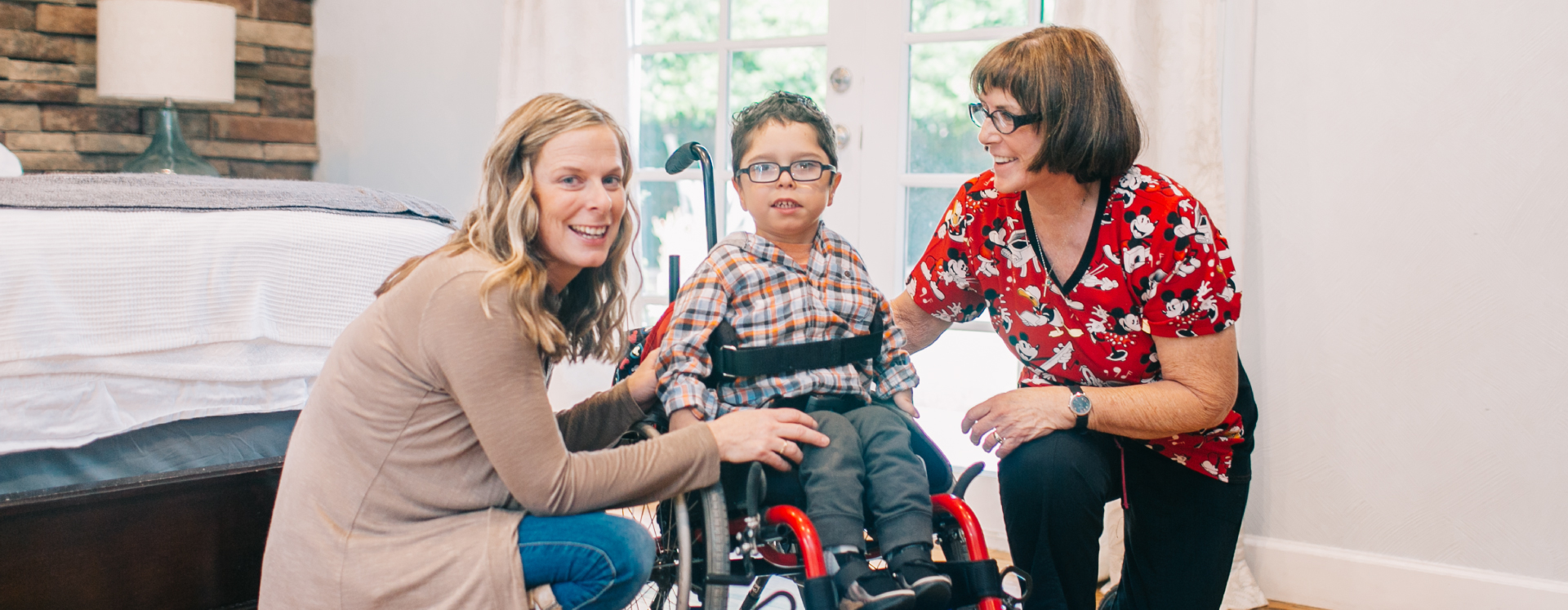Taking care of medically fragile children in the home has had its share of obstacles to overcome, from access to care to rate cuts. To be successful in providing care to this population requires great collaboration between payers and providers. Fortunately, the state of Colorado has a truly collaborative program that gives caregivers the ability to care for their medically fragile children.
2020 has been a year of challenges that has affected all facets of life. With a pandemic crisis that has seen record numbers of outbreaks in many states, to a national qualified nursing shortage, as well as a lack of qualified caregivers, it has been a tough year for all companies in the home health space.
While everyone is having to adjust to a new way of life through social distancing, mask-wearing, and other state-mandated safety procedures to prevent the spread of COVID-19, one group that is at the most risk is the medically fragile pediatric population.
“There’s really a national shortage of home health care workers who have the skills to care for the level of needs [medically complex] children have,” Dr. Carolyn Foster, an assistant professor of pediatrics at Northwestern University’s Feinberg School of Medicine.
Overall, just 2% of Medicaid spending for children with medical complexity has gone to home health care, according to a recent study published in the journal Health Affairs. (Source: Home Health Care News Blog)
These vulnerable patients, along with their families, are experiencing even more challenges with these factors and make the care of these patients even more nuanced and difficult to navigate.
THE CAREGIVERS CURRENT REALITY
Imagine being a parent to a child who has a tracheostomy tube and a ventilator. These families already had their hands full with this child, but now they also have to deal with the threat of a pandemic and the added worry of exposure that comes with face to face contact.
Add that to the current challenges of remote work, or worse, the stress of lost income due to unemployment. Fortunately, a program in Colorado exists that tackles some of these serious issues.
CERTIFIED NURSING ASSISTANT PROGRAM
The state of Colorado, through Health First Colorado (Colorado’s Medicaid Program), offers a program; to caregivers (family members, relatives, or guardians); the ability to become a Certified Nursing Assistant (CNA), and receive funding from the state to assist in the care of their loved ones.
This program has been in effect for more than a decade and other states; without restrictions on paying parents; have taken notice of the successful model. In fact, California has a similar program to Colorado, but their qualifications and processes vary slightly.
In order to qualify, parents need to meet certain requirements that are outlined on the Colorado.gov website. In short, a parent must have the following:
- The child must be eligible for Health First Colorado (Colorado’s Medicaid Program)
- The child must qualify for CNA services
- The parent (or guardian) must be a certified CNA in the state of Colorado
- The parent must be hired by a home health agency
“This program is one of the many types of support offered to families with medically complex kids,” said Chani Feldman, Chief Government Affairs & Strategy Officer, MGA Homecare “It is an innovative, high-quality, and low-cost option that is compelling to payers. We plan to educate policymakers all over the country on the value of using this type of care to supplement their PDN benefit already in existence.”
CERTIFIED NURSING ASSISTANT
A CNA, also known as a Certified Nursing Aide, assists a clinician in the provisions of patient care services through regular assignments or delegated tasks. The CNA is supervised by the Registered Nurse but functions in a collaborative team member role demonstrating responsibility to the patient, physician, and the health care team.
The CNA demonstrates the ability to carry out specific tasks with reasonable skill and safety that adhere to the prevailing standard of practice in the nursing community. Most importantly, the CNA in many cases is the parent or relative of the patient who is enthusiastic about giving the absolute best quality of life care to their loved ones.
CNA TRAINING
MGA Homecare has three locations in Colorado: Colorado Springs, Denver, and Pueblo, which offer classes for those interested in becoming a CNA through the MGA Academy Program.
The Academy, established in 2014, offers hands-on training, either in-person or online capacity, along with a comprehensive curriculum and state-of-the-art facility to provide the best educational experience for those wishing to become CNAs.
Since the opening, the program has expanded to Denver and most recently, Pueblo, where the number of successful graduates skyrocketed from 16 to 500+, with an average 93% pass rate on state exams.
ADDITIONAL RESOURCES
- Certified Nurse Aide Requirements in Colorado
- HCP ‐ A Program for Children and Youth with Special Health Care Needs‐ for questions and to link you to other valuable services and supports.
1‐800‐886‐7689, ext. 2370. - Colorado Department of Health Care Policy and Financing ‐ Home Health Program- for questions about parent CNA income and Medicaid eligibility or to provide guidance to your home health agency about hiring parents as a CNA.
(866.5578) - Department of Regulatory Agencies (DORA) ‐ for a list of approved Certified Nurse Aide (CNA) training programs and requirements.
1‐800‐886‐7675
About MGA Homecare
MGA Homecare has more than a decade of experience providing personalized pediatric home healthcare services. We focus on delivering exceptional pediatric clinical care by matching families with a healthcare professional who has the right skills and experience. Our seasoned clinicians are provided with the ongoing training and resources they need to handle every home healthcare situation with professionalism and care. Headquartered in Scottsdale, Arizona, with offices in Colorado and Texas.

